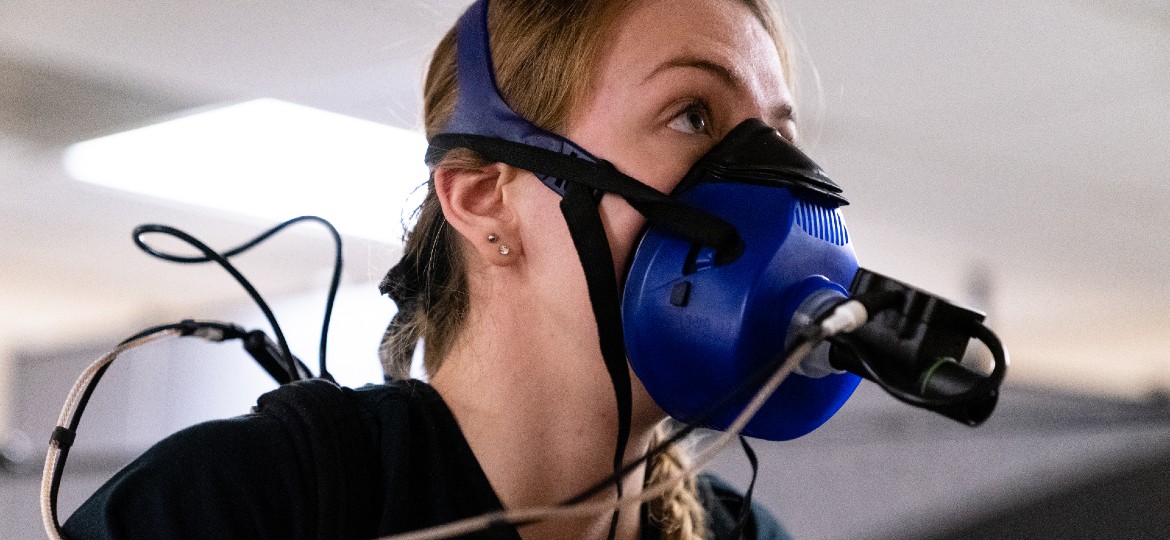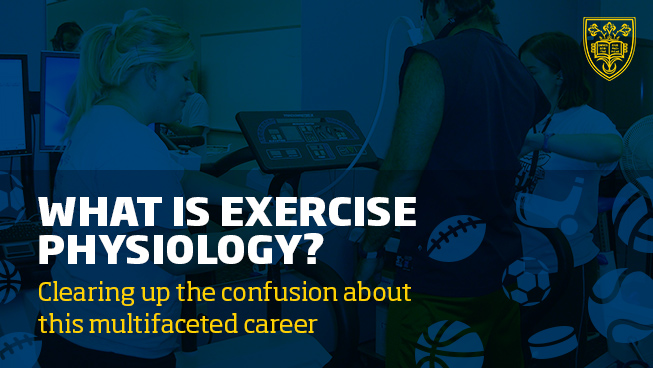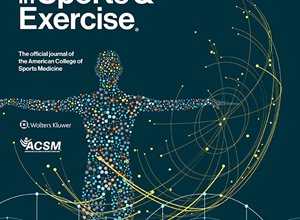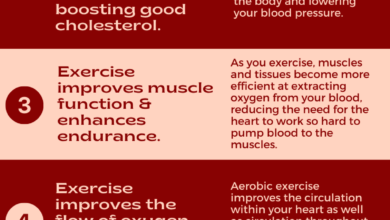
What is the Difference between Exercise Science And Exercise Physiology: Explained
Exercise Science and Exercise Physiology are often confused. Both study the human body and its responses to physical activity.
But they are not the same. Understanding the differences helps you choose the right path for your interests and career goals. Exercise Science is a broad field. It covers many aspects of physical activity, including biomechanics, nutrition, and psychology. It looks at how exercise impacts overall health and performance.
Exercise Physiology, on the other hand, focuses on how the body’s systems react to physical activity. It studies the biological responses and adaptations during and after exercise. Knowing these differences can guide your education and career in the health and fitness industry.
Historical Background
Understanding the historical background of Exercise Science and Exercise Physiology helps to appreciate their differences. These fields have unique origins that contribute to their distinct roles today.
Origins Of Exercise Science
Exercise Science has roots in ancient Greece. The Greeks valued physical fitness and performance. They believed a strong body was as important as a strong mind. Hippocrates, the “Father of Medicine,” also emphasized exercise. In the 20th century, Exercise Science became a formal field. Researchers began studying how exercise impacts the human body. Universities started offering degrees in Exercise Science. The field grew with the rise of sports and fitness culture.
Origins Of Exercise Physiology
Exercise Physiology also has ancient origins. It emerged from medicine and biology. The focus was on how exercise affects body systems. In the 19th century, scientists began formal studies on this. They examined how muscles use energy during exercise. They also studied how the heart and lungs respond. This led to a better understanding of physical health. By the mid-20th century, Exercise Physiology was a recognized field. It became vital in sports and rehabilitation. Researchers and professionals focused on optimizing physical performance.

Credit: www.georgefox.edu
Core Concepts
Understanding the core concepts of Exercise Science and Exercise Physiology can help you know the difference between these fields. Both are related to how the body works during physical activity. But, they focus on different aspects.
Exercise Science Basics
Exercise Science is a broad field. It covers many areas of health and fitness.
- Anatomy: Study of body structure.
- Biomechanics: How the body moves.
- Nutrition: Fueling the body.
- Psychology: Mental aspects of exercise.
Exercise Science helps in designing fitness programs. It aims to improve health and performance. This field is suitable for personal trainers and coaches.
Exercise Physiology Fundamentals
Exercise Physiology goes deeper. It focuses on body functions during exercise.
- Cardiovascular System: Heart and blood flow.
- Respiratory System: Breathing and oxygen use.
- Muscular System: Muscle function and strength.
- Metabolism: Energy production and use.
Exercise Physiology is important for medical and sports settings. It helps understand how exercise affects health. This field is ideal for clinical exercise physiologists and researchers.
Both Exercise Science and Exercise Physiology are crucial. They help us understand and improve our physical well-being.
Educational Pathways
Educational Pathways are essential for anyone pursuing a career in exercise science or exercise physiology. Understanding the educational requirements and available degrees can help you make informed decisions about your future. Below, we explore the degrees for both exercise science and exercise physiology.
Degrees In Exercise Science
Degrees in exercise science typically start with a bachelor’s program. These programs cover a broad range of subjects, including anatomy, kinesiology, and sports nutrition.
- Bachelor’s Degree: This is the foundational degree. It includes coursework in biomechanics, exercise testing, and fitness programming.
- Master’s Degree: This advanced degree delves deeper into specialized areas. Topics include advanced exercise prescription and research methods.
- Doctorate Degree: The highest level of education. Focuses on independent research and academic teaching.
Many universities offer accredited programs. They provide both theoretical knowledge and practical experience. Internships and lab work are often included.
Degrees In Exercise Physiology
Degrees in exercise physiology are more specialized. They focus on the body’s responses to physical activity.
- Bachelor’s Degree: This program covers the basics of human physiology and the effects of exercise.
- Master’s Degree: This degree includes advanced study in areas like cardiovascular physiology and muscle biology.
- Doctorate Degree: The Ph.D. in exercise physiology prepares students for research and teaching careers. It involves extensive research projects.
Exercise physiology programs often require lab work. This hands-on experience is crucial for understanding complex physiological processes.
Both fields offer rewarding career opportunities. Choosing the right educational path depends on your career goals and interests.
Career Opportunities
Choosing a career in exercise science or exercise physiology can be exciting. Both fields offer unique opportunities. Understanding the differences can help you decide which path suits you best. Let’s explore the career opportunities in each field.
Jobs In Exercise Science
Exercise science graduates can work in various settings. Many find jobs in fitness centers. Others work in corporate wellness programs. Some become personal trainers or fitness coaches. They may also work in sports organizations. Here, they help athletes improve their performance.
Additionally, exercise science professionals can work in community health programs. They create and lead exercise programs for different populations. They often work with children, adults, and seniors. Some also find roles in research settings. They study the impact of exercise on health.
Jobs In Exercise Physiology
Exercise physiology graduates often work in clinical settings. Hospitals and rehabilitation centers are common employers. They help patients recover from illness or injury. They design and monitor exercise programs for patients. These programs aim to improve physical function and health.
Some exercise physiologists work in cardiac rehabilitation. They assist patients recovering from heart surgery or heart attacks. Others find roles in pulmonary rehabilitation. They help patients with lung diseases improve their breathing and overall health.
Exercise physiologists may also work in research. They study how exercise affects the body. Their research can lead to new treatments and exercise guidelines. Some may teach at universities. They educate the next generation of exercise professionals.
Research And Methodologies
Research and methodologies are the backbone of both exercise science and exercise physiology. They help us understand how the body works during physical activity. Though these fields are related, they have distinct focuses and methods. Let’s dive into the specifics of each field’s research approach.
Exercise Science Research
Exercise science research looks at how physical activity affects health and performance. Researchers study various types of exercises and their impacts on the body. They also explore how different populations respond to exercise.
Methods include observational studies, surveys, and experiments. Researchers might look at how exercise improves heart health or reduces obesity. They also analyze data to find patterns and make recommendations.
For instance, they might study how different exercise routines affect muscle growth. They also assess the psychological benefits of physical activity. This helps create effective exercise programs.
Exercise Physiology Research
Exercise physiology research focuses on the body’s responses to physical activity. Researchers study cells, tissues, and organs. They want to know how exercise changes these at a biological level.
Methods include lab experiments and clinical trials. Researchers might measure oxygen consumption during exercise. They also analyze blood samples to study metabolic changes.
For example, they might look at how muscles repair after intense workouts. They also study how the heart and lungs adapt to regular exercise. This helps improve training methods and recovery strategies.
In summary, exercise science and exercise physiology have unique research focuses. Exercise science is broader, while exercise physiology is more specific. Both fields use rigorous methods to advance our understanding of physical activity.

Credit: online.maryville.edu
Practical Applications
Understanding the differences between Exercise Science and Exercise Physiology helps apply knowledge more effectively. These fields have distinct practical applications. Let’s explore these applications in sports, fitness, and clinical settings.
In Sports And Fitness
Exercise Science focuses on improving athletic performance. It involves creating training programs, analyzing techniques, and optimizing nutrition. Professionals in this field work with athletes to enhance strength, endurance, and agility.
On the other hand, Exercise Physiology delves deeper into how the body responds to physical activity. It studies the effects of exercise on muscles, organs, and systems. This knowledge helps in designing workouts that maximize physiological benefits while minimizing injury risks.
Both fields contribute to the overall well-being of athletes. They ensure that training regimens are effective, safe, and tailored to individual needs.
In Clinical Settings
In clinical settings, Exercise Science applies to fitness assessments, rehabilitation programs, and health promotion. Professionals use exercise prescriptions to manage weight, improve cardiovascular health, and enhance quality of life for patients.
Exercise Physiology plays a crucial role in medical rehabilitation. It aids in treating chronic diseases such as diabetes, hypertension, and heart disease. Exercise physiologists design personalized exercise plans to improve patients’ health outcomes.
Both disciplines contribute to preventative healthcare. They help people adopt healthier lifestyles and manage chronic conditions through targeted physical activity.
| Aspect | Exercise Science | Exercise Physiology |
|---|---|---|
| Focus | Performance Optimization | Body’s Response to Activity |
| Application | Training Programs | Rehabilitation Plans |
| Setting | Sports and Fitness | Clinical Settings |
Future Trends
Exploring the future trends in exercise science and exercise physiology is exciting. Both fields are evolving rapidly. They are benefiting from technology and new research.
Advancements In Exercise Science
Exercise science is becoming more data-driven. Wearable technology is leading the way. Devices track heart rate, steps, and sleep. This data helps personalize fitness plans.
Virtual reality (VR) is another trend. VR can make workouts more engaging. It can simulate different environments. This keeps exercises fun and varied.
Artificial intelligence (AI) is also playing a role. AI can analyze data quickly. It helps in creating efficient workout routines. Personalized coaching is becoming more accessible.
Advancements In Exercise Physiology
Exercise physiology focuses on how the body responds to exercise. New imaging technologies are helping in this field. They provide detailed insights into muscle and tissue changes.
Genetic testing is another advancement. It helps understand how genes affect exercise performance. This can lead to more personalized fitness programs.
Wearable sensors are improving too. They monitor physiological responses in real-time. This data helps in making immediate adjustments to workouts. It ensures safety and effectiveness.
Nutrition science is also merging with exercise physiology. Understanding the best diet for exercise recovery is crucial. It helps in achieving better results.

Credit: www.css.edu
Frequently Asked Questions
What Is Exercise Science?
Exercise science is the study of movement and how it impacts health. It includes areas such as biomechanics, nutrition, and psychology.
What Is Exercise Physiology?
Exercise physiology focuses on the body’s responses to physical activity. It examines how exercise affects muscles, organs, and overall health.
How Do Exercise Science And Exercise Physiology Differ?
Exercise science is broader, covering multiple aspects of physical activity. Exercise physiology is more specialized, focusing on biological responses.
Which Field Should I Study?
Choose exercise science for a broad understanding of physical activity. Opt for exercise physiology if you’re interested in the body’s specific responses.
Conclusion
Exercise Science and Exercise Physiology have distinct focuses. Exercise Science covers broader aspects, including sports and health. Exercise Physiology dives deep into how exercise affects body functions. Both fields complement each other. They offer unique insights into physical activity. Understanding these differences helps in choosing the right path.
Whether you’re a student or a fitness enthusiast, this knowledge is valuable. Always stay informed and make educated decisions. This will lead to better health and performance outcomes.





